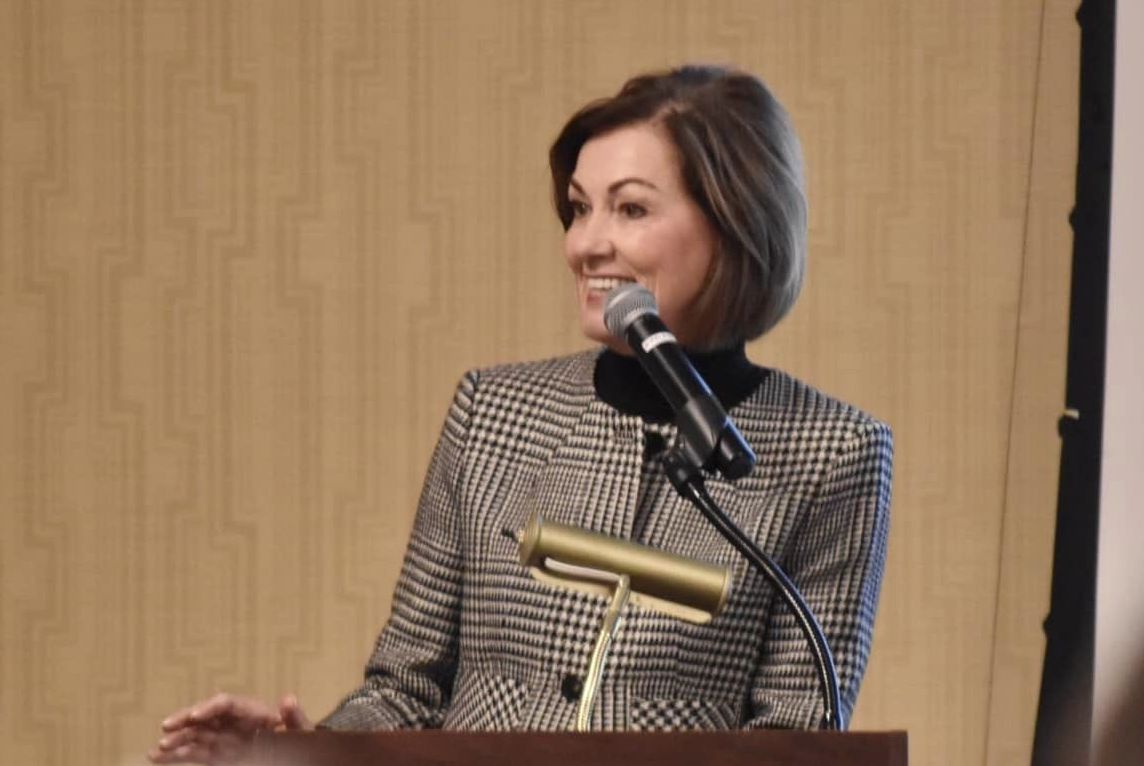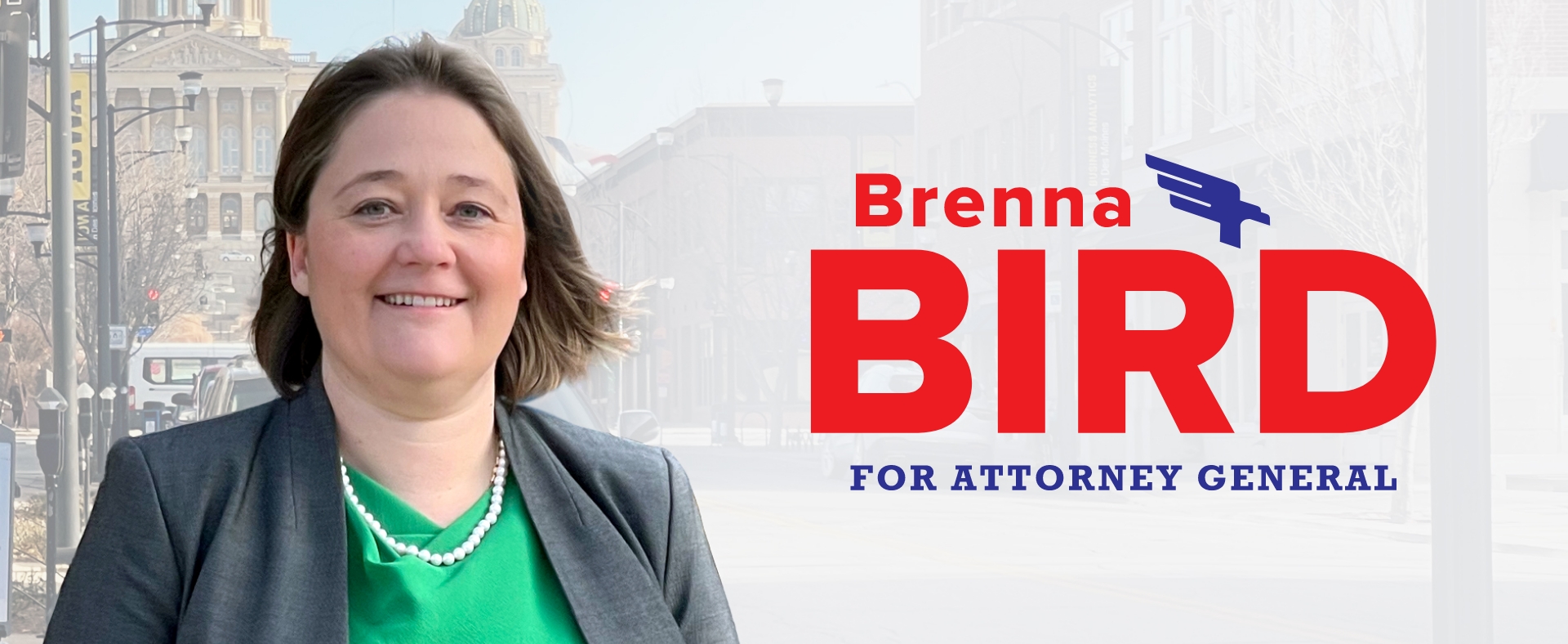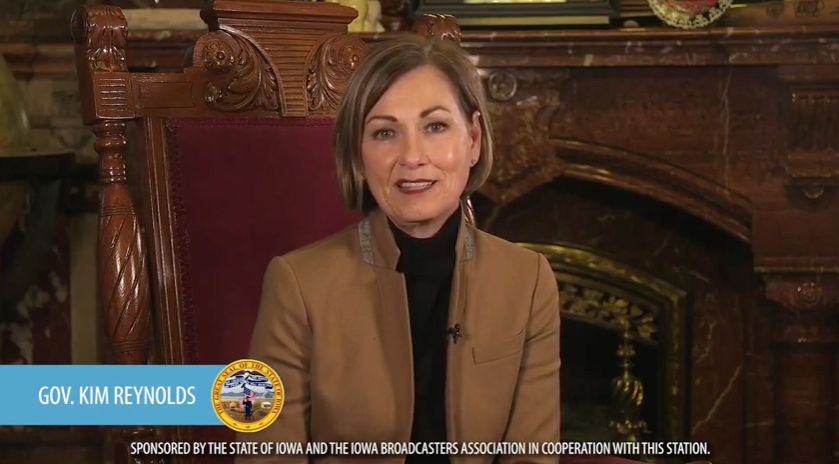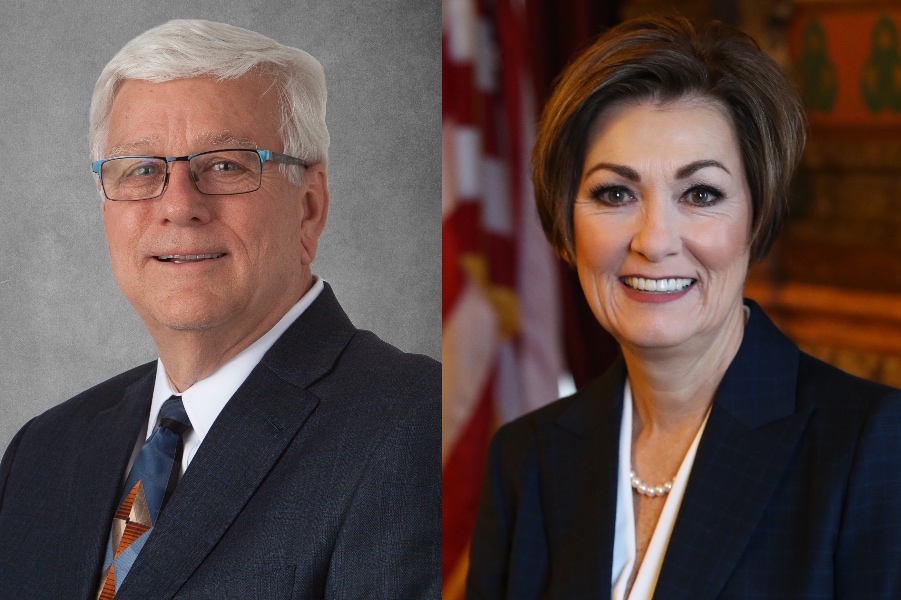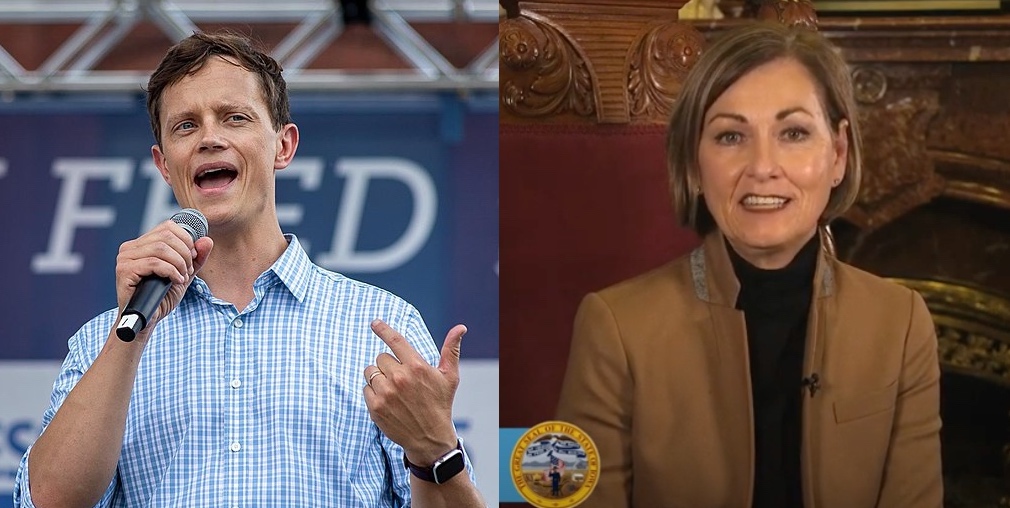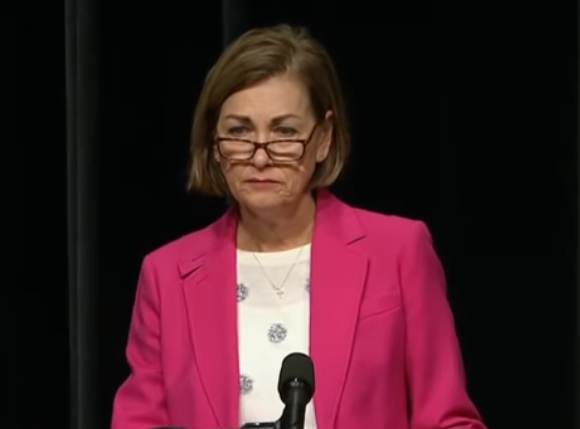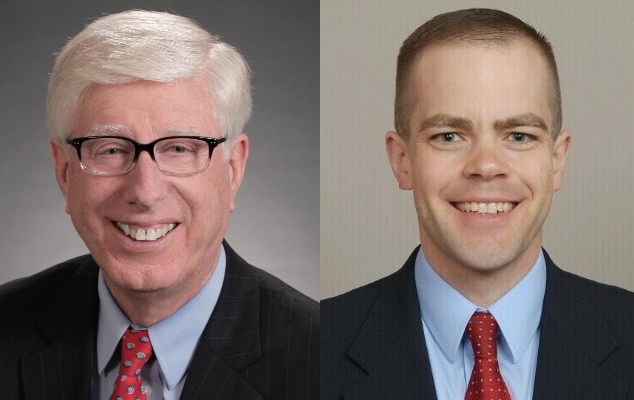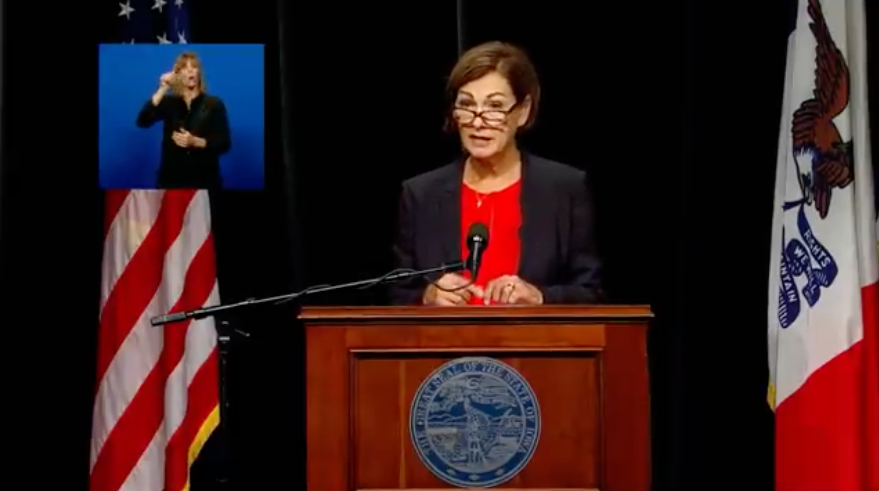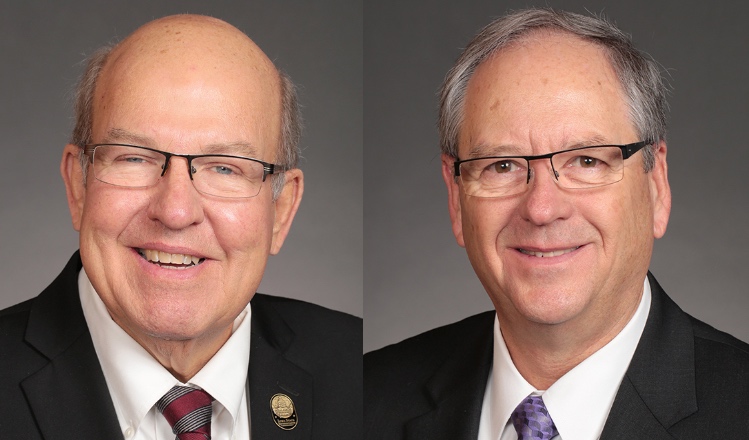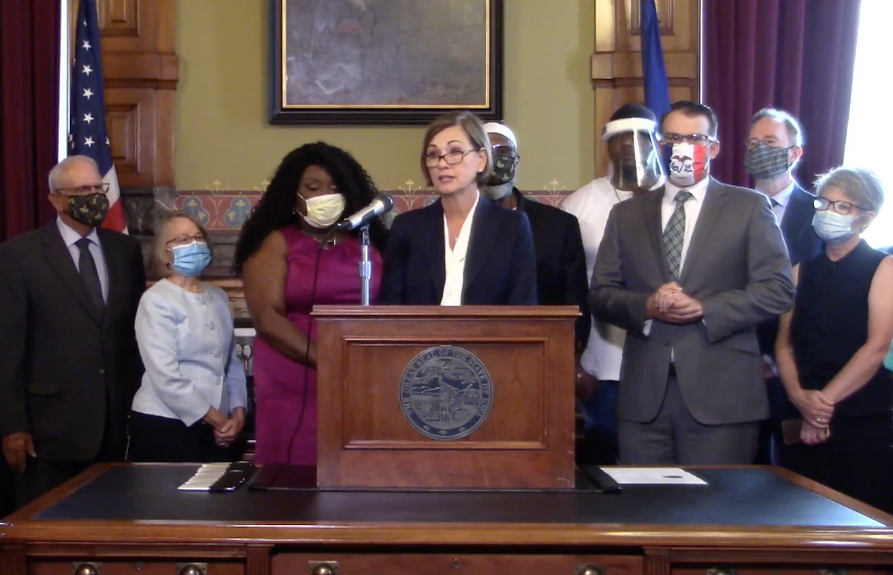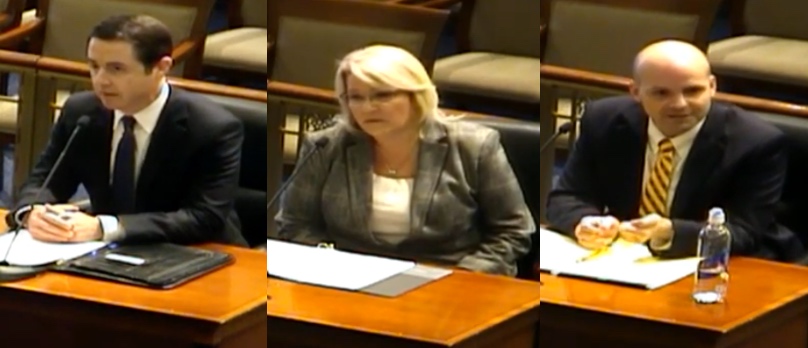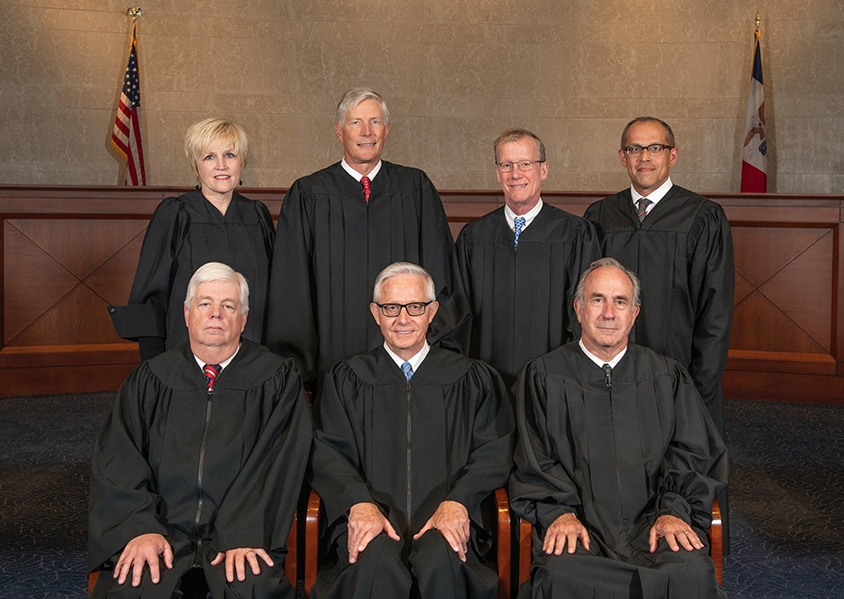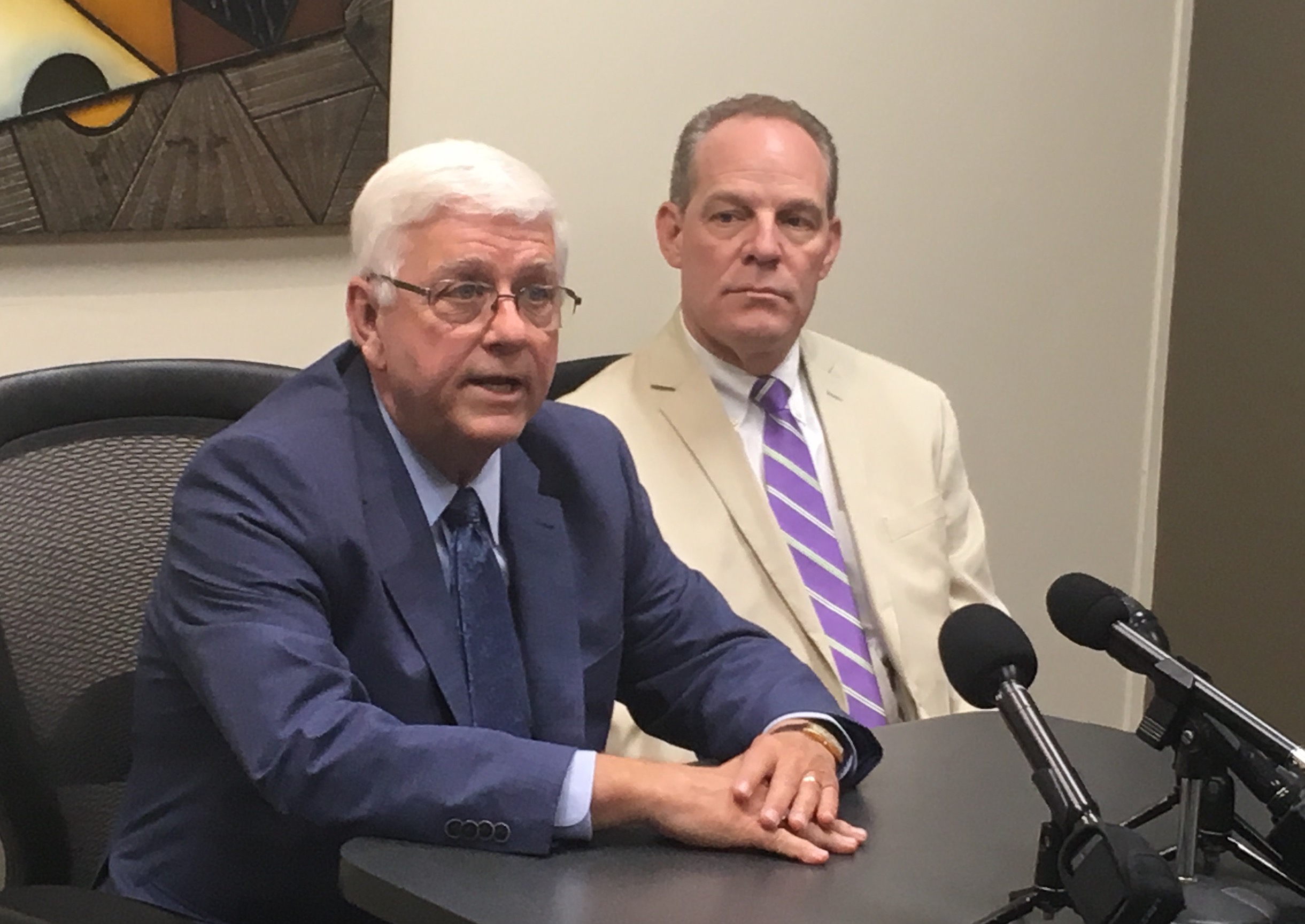Jerry Foxhoven asserts in a new lawsuit that Governor Kim Reynolds and her senior staff forced him out as Iowa Department of Human Services director “because he refused to engage in illegal activity” and to prevent him from seeking legal advice about possible misuse of federal Medicaid funds.
The petition filed in Polk County District Court on June 9 closely tracks allegations Foxhoven made in a wrongful termination claim soon after he resigned under pressure in 2019. Reynolds, her chief of staff Sara Craig Gongol, and her former senior legal counsel Sam Langholz are named defendants in addition to the state of Iowa.
Foxhoven’s court filing says the events leading to his ouster centered on a dispute over payments from DHS for work done by Reynolds’ deputy chief of staff Paige Thorson. The DHS director agreed in early 2018 to have the agency pay 69 percent of Thorson’s salary and benefits, as she assisted Iowa’s new Medicaid director Mike Randol. Foxhoven signed a similar agreement for the next fiscal year, which ran through June 2019. (Several of the governor’s staffers are mostly paid by other state agencies; the longstanding practice helps Reynolds keep more staff on payroll than her budget appropriation could support.)
Foxhoven says that in February or March 2019, he told Craig Gongol in a telephone conversation “that Randol was now adequately familiar with Iowa’s health care network,” adding that “Thorson was no longer performing duties that furthered the mission of Iowa Medicaid and that he did not believe DHS could legally divert federal Medicaid dollars to pay her salary.”
In the spring of 2019, Republican lawmakers approved an extra $200,000 for the governor’s office, supposedly for health and tax policy analysts. Foxhoven says he “believed that the issue was resolved,” and spoke with Craig Gongol in early June “hoping to confirm that DHS would not continue paying any portion of the Thorson’s salary with Medicaid funds in the next fiscal year.”
However, the governor’s chief of staff indicated that she expected the agency to keep compensating Thorson. Foxhoven “questioned the legality of such an arrangement” and asked Craig Gongol to consult with legal counsel Langholz, but she refused.
According to Foxhoven, he told Craig Gongol “that he intended to ask the assistant attorney generals assigned to DHS for a legal opinion” on June 18, after the expected conclusion of a federal trial they were working on. But he wasn’t able to send that email, because Craig Gongol and Langholz asked for his resignation on June 17. Foxhoven says during that meeting, the governor’s senior staff “demanded the immediate return of all of Foxhoven’s state issued equipment and told him not to return to his office.”
The lawsuit alleges that the defendants terminated Foxhoven:
- “in order to prevent him from enforcing his statutory right to disclose information he reasonably and in good faith believed constituted a violation of the law, mismanagement, a gross abuse of funds or abuse of authority […]”;
- “in order to prevent him from disclosing information he reasonably and in good faith believed constituted a violation of the law, mismanagement, a gross abuse of funds or abuse of authority […]”;
- “because he refused to engage in illegal activity; that is committing Medicaid fraud and misuse of federal monies by continuing to pay Thorson’s salary despite the fact that she was no longer providing any duties relating to Medicaid or otherwise furthering the mission of DHS […]”; and
- interfered with and prevented him from consulting with the Iowa Attorney General’s office about his agency continuing to pay Thorson’s salary.
Foxhoven told journalists in 2019 he would not have objected to using Medicaid funds to support Thorson’s compensation if legal experts determined the practice was still allowable. But he wanted a letter from the Attorney General’s office. That way, in case state or federal auditors questioned the payments later, “There might be a difference of opinion between the auditor and the AG’s office, but it isn’t a matter of Foxhoven diverting funds.”
State agency directors are at-will employees, who serve at the pleasure of the governor. But one exception to the at-will doctrine is firing someone in violation of public policy–for instance, because they refuse to engage in illegal conduct. Foxhoven’s lawsuit alleges that his “termination violates well established public policy of the State of Iowa as defined by statute, regulation, and judicial decision.”
The court filing notes that Foxhoven has suffered “substantial loss of earnings, insurance benefits, retirement benefits and other employee benefits” as well as “emotional distress and damage to his reputation.” It also argues that he’s entitled to punitive damages against Reynolds, Craig Gongol, and Langholz, because their termination of his employment “was willful and wanton and done in reckless disregard of his rights.”
The governor’s office did not immediately respond to Bleeding Heartland’s request for comment on the lawsuit. The Iowa Attorney General’s Office had no comment. Langholz has worked there since late last year, representing the Reynolds administration in several high-profile cases.
Reynolds said in 2019 that “many factors” influenced her decision to ask for the DHS director’s resignation. (The agency has faced lawsuits and investigations over its management of the State Training School for Boys and the Glenwood Resource Center for the intellectually disabled.) In early 2020, the governor told reporters “she was ‘not happy’ with the response she received” about an increase in deaths at Glenwood.
Reynolds also claimed Foxhoven “never raised concerns with me or my staff about the salary agreements in question, and he never asked my staff for a legal opinion or said he would be reaching out to the Attorney General’s office for one.”
Final note: Records I received while investigating the governor’s office spending indicated that DHS did not end up paying any portion of Thorson’s salary during fiscal year 2020, which began in July 2019. However, DHS did pay 100 percent of the salary and benefits of the governor’s new health policy adviser Liz Matney from July 2019 through mid-March 2020. Thorson and Matney were among 21 permanent staffers in Reynolds’ office who had about 62 percent of their compensation from mid-March through June 2020 covered through federal COVID-19 relief funds.
Appendix: Petition filed in Polk County District Court on June 9
Continue Reading...



